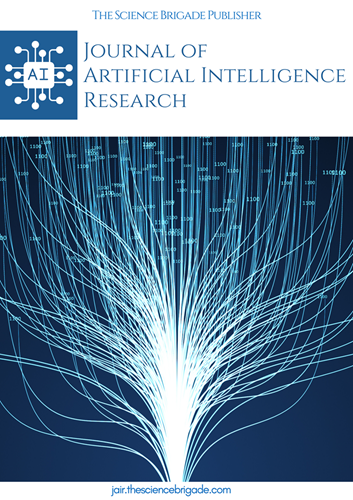Artificial Intelligence in Humanitarian Aid and Development: A New Paradigm for International Cooperation
Keywords:
Artificial Intelligence, Humanitarian AidAbstract
This article examines the emerging role of Artificial Intelligence (AI) in the field of humanitarian aid and development, highlighting how these technologies are reshaping the paradigm of international cooperation. Through an analysis of case studies and current applications, we identify both the opportunities and challenges that AI presents to improve the effectiveness, efficiency and reach of aid and development programs. We conclude with policy recommendations to guide the responsible integration of AI in these critical areas.
References
Ahmet, E. F. E. (2022). A review on Risk Reduction Potentials of Artificial Intelligence in Humanitarian Aid Sector. Journal of Human and Social Sciences, 5(2), 184-205.
David, W., Garmendia-Doval, B., & King-Okoye, M. (2022, October). Artificial Intelligence supports the paradigm shift from reactive to anticipatory action in humanitarian responses. In International Conference on Modelling and Simulation for Autonomous Systems (pp. 145-162). Cham: Springer International Publishing.
Addo, P. M., Baumann, D., McMurren, J., Verhulst, S., Young, A., & Zahuranec, A. J. (2021). Emerging uses of technology for development: A new intelligence paradigm. In Emerging uses of technology for development: a new intelligence paradigm: Addo, Peter Martey| uBaumann, Dominik| uMcMurren, Juliet| uVerhulst, Stefaan| uYoung, Andrew| uZahuranec, Andrew J. Paris, France: AFD éditions.
Verhulst, S., Addo, P. M., Young, A., Zahuranec, A. J., Baumann, D., & McMurren, J. (2021). Emerging uses of technology for development: a new intelligence paradigm. Available at SSRN 3937649.
Beduschi, A. (2022). Harnessing the potential of artificial intelligence for humanitarian action: Opportunities and risks. International Review of the Red Cross, 104(919), 1149-1169.
Zinchenko, V., Boichenko, M., Polishchuk, O., Polishchuk, O., Hromyk, A., & Chervona, L. (2022). Strategy of Sustainable Development Paradigm for Society in Research Activities Sciences, Artificial Intelligence, and Institutional Transformations of the Education System. Res. Asp. Arts Soc. Stud. Vol., 1, 32-53.
Granjo, C. M. (2021). Humanitarian action and the digital age.
Beduschi, A. (2021). International migration management in the age of artificial intelligence. Migration Studies, 9(3), 576-596.
Fernandez-Luque, L., & Imran, M. (2018). Humanitarian health computing using artificial intelligence and social media: A narrative literature review. International journal of medical informatics, 114, 136-142.
Fejerskov, A. M., Clausen, M. L., & Seddig, S. (2023). Humanitarian ignorance: towards a new paradigm of non‐knowledge in digital humanitarianism. Disasters.
Li, B. H., Hou, B. C., Yu, W. T., Lu, X. B., & Yang, C. W. (2017). Applications of artificial intelligence in intelligent manufacturing: a review. Frontiers of Information Technology & Electronic Engineering, 18(1), 86-96.
Dargan, S., Kumar, M., Ayyagari, M. R., & Kumar, G. (2020). A survey of deep learning and its applications: a new paradigm to machine learning. Archives of Computational Methods in Engineering, 27, 1071-1092.
Mansbach, R. W., & Vasquez, J. A. (1981). In search of theory: A new paradigm for global politics. Columbia University Press.
Tran, T. X., Hajisami, A., Pandey, P., & Pompili, D. (2017). Collaborative mobile edge computing in 5G networks: new paradigms, scenarios, and challenges. IEEE Communications Magazine, 55(4), 54-61.
Ronchi, A. M. (2019). E-citizens: Toward a new model of (inter) active citizenry. Springer.
Kaplan, S. D. (2008). Fixing fragile states: a new paradigm for development. Bloomsbury Publishing USA.
Connable, B. (2012). Military intelligence fusion for complex operations: A new paradigm (p. 0039). Arlington, VA: Rand Corporation.
Lu, H., Li, Y., Chen, M., Kim, H., & Serikawa, S. (2018). Brain intelligence: go beyond artificial intelligence. Mobile Networks and Applications, 23, 368-375.
Pauwels, E. (2020). Artificial Intelligence and data capture technologies in violence and conflict prevention. Global Centre on Cooperative Security. Accessed on, 10(07), 2022.
Hussain, S. S. (2024). Artificial Intelligence and Diplomacy: Transforming International Relations in the Digital Age. Remittances Review, 9(1), 988-1001.
Downloads
Published
How to Cite
Issue
Section
License

This work is licensed under a Creative Commons Attribution-NonCommercial-ShareAlike 4.0 International License.
License Terms
Ownership and Licensing:
Authors of this research paper submitted to the journal owned and operated by The Science Brigade Group retain the copyright of their work while granting the journal certain rights. Authors maintain ownership of the copyright and have granted the journal a right of first publication. Simultaneously, authors agreed to license their research papers under the Creative Commons Attribution-NonCommercial-ShareAlike 4.0 International (CC BY-NC-SA 4.0) License.
License Permissions:
Under the CC BY-NC-SA 4.0 License, others are permitted to share and adapt the work, as long as proper attribution is given to the authors and acknowledgement is made of the initial publication in the Journal. This license allows for the broad dissemination and utilization of research papers.
Additional Distribution Arrangements:
Authors are free to enter into separate contractual arrangements for the non-exclusive distribution of the journal's published version of the work. This may include posting the work to institutional repositories, publishing it in journals or books, or other forms of dissemination. In such cases, authors are requested to acknowledge the initial publication of the work in this Journal.
Online Posting:
Authors are encouraged to share their work online, including in institutional repositories, disciplinary repositories, or on their personal websites. This permission applies both prior to and during the submission process to the Journal. Online sharing enhances the visibility and accessibility of the research papers.
Responsibility and Liability:
Authors are responsible for ensuring that their research papers do not infringe upon the copyright, privacy, or other rights of any third party. The Science Brigade Publishers disclaim any liability or responsibility for any copyright infringement or violation of third-party rights in the research papers.




